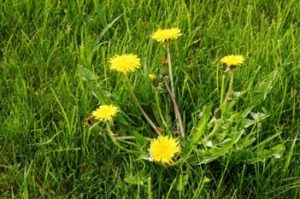
Have you ever experienced the frustration of spraying your lawn with a weed control product only to see no improvement? The most difficult-to-control weeds require special herbicides, many of which may not be available to the homeowner.
Delaware lawn care is challenging for homeowners who are not familiar with native weeds or their best treatments. If you own a vacation home or moved here to retire, you may see weed species that you are not familiar with.
There are cultural lawn maintenance practices that help suppress weed problems. Effective Delaware lawn care techniques include:
- Applying adequate fertilizer at the right time of year
- Monitoring soil pH and other nutrients using proper soil testing methods
- Mowing your lawn to a height of 3.0 – 3.5”
- Irrigating your turf deeply and infrequently
Although cultural practices such as these are helpful, they do not prevent all weed problems. Using herbicides is essential to maintaining a functional and attractive lawn. Learn tips for using herbicides to treat and prevent four common Delaware weed types:
Your Delaware lawn care company should apply a preemergence, crabgrass-targeted herbicide in March or early April to prevent crabgrass growth. Don’t expect any herbicide to be completely effective – about 85% effectiveness is most realistic. The following herbicides prevent crabgrass encroachment:
- Dithiopyr
- Pendimethalin
- Prodiamine
If crabgrass is already a problem in your lawn, effective postemergence weed control is difficult to achieve. If you require postemergence treatments, however, leave the application to your lawn care company. The best timing to apply these herbicides is mid-July. After late July, complete control is unlikely.
Ready to discover other effective lawn care techniques for your home? Read these seasonal tips for a beautiful lawn all year.
